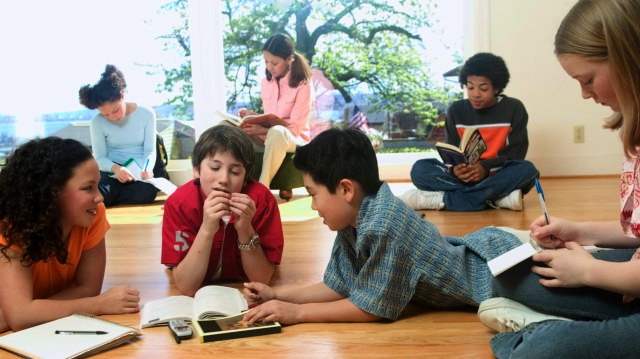
Growing high-achievers: fresh studies show how gardening nurtures young minds
-
14 September 2015
I’ve posted blogs before on the many ways that interaction with plants and nature can improve children’s performance and behaviour at school, not to mention their sense of wellbeing (see related blog posts, below), and the evidence keeps coming: more studies have recently come out showing new ways in which gardening or even just being around and seeing plants can have a positive impact on young minds.
A study carried out in Barcelona found that children aged between seven and 10 in city schools with green spaces showed increased working memory of over 22% while superior working memory increased by over 15%. On the other hand, inattentiveness dropped by almost 19%.
The study, led by Dr Payam Dadvand at the Centre for Research and Environmental Epidemiology in Barcelona, concluded that exposure to green spaces had a positive impact on cognitive development, thanks in part to the way these spaces acted as a buffer against urban environmental pollutants.
In fact, the researchers claim that schools which increased the amount of green space to the levels used in the study would see a decrease of nearly nine percent in the proportion of children with impaired superior working memory.
Another piece of research: ‘School Gardens Enhance Academic Performance and Dietary Outcomes in Children’, by Claire Berezowitz, Andrea Bontrager and Dale Schoeller, found that in 12 schools where children were taught in gardens, all showed improvements in fruit and vegetable consumption. What’s more, some children showed improvement in maths and science.
As well as dietary improvements, gardening in schools has been shown to improve physical activity. Another recent report, ‘School gardens and Physical Activity: A Randomized Controlled Trial of Low-Income Elementary Schools’ found that sedentary behaviours were reduced and moderate to vigorous exercise increased in schools with garden programmes.
An ongoing, and increasingly popular, programme in US schools also underlines these findings. The Real School Gardens project, which helps schools to plan and build their gardens based on students’ designs, is about to partner with its 100th school this autumn.
Teachers at schools involved in the project have reported that, three years on from getting the new school garden, between 12 and 15 per cent more children have passed standardised tests, while some 94 per cent of teachers in these schools have reported increased engagement from students.
Perhaps this last finding, tested over a longer term and reported by the teachers themselves, is the most striking confirmation of how the simple act of getting school children outside among gardens and nature, can have a positive effect on all aspects of their education and wellbeing.
To find out more about how indoor plants can make a real difference in educational settings, click here.